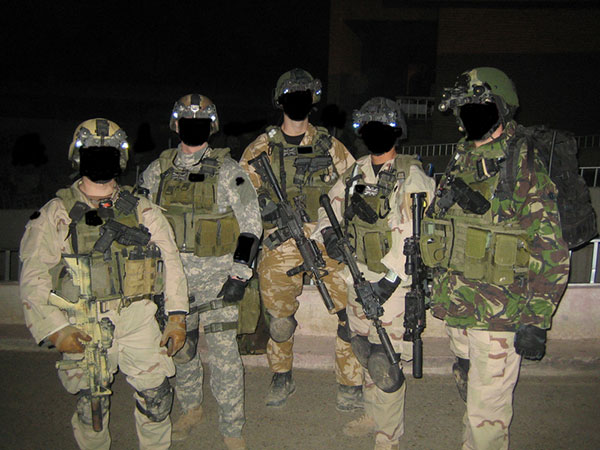
From Lolita C. Baldor and Slobodan Lekic, the AP: As the battle in Libya appeared at stalemate, it was an open secret that foreign military advisers were working covertly inside the country providing guidance to rebels and giving tactical intelligence to NATO aircraft bombing government forces.
Diplomats say members of the alliance and partners in the Middle East were engaged in an undercover campaign on the ground in Libya. The operation was kept separate from the NATO command structure to avoid compromising its mandate from the United Nations — to protect civilians. . . .
Diplomats acknowledge that covert teams from France, Britain and some East European states provided critical assistance.
The assistance included logisticians, security advisers and forward air controllers for the rebel army, as well as intelligence operatives, damage assessment analysts and other experts, according to a diplomat based at NATO’s headquarters in Brussels. The diplomat spoke on condition of anonymity due to the sensitivity of the issue.
The CIA and other U.S. intelligence agencies have been gathering information throughout the conflict from contacts they had developed when they were working with Gadhafi’s government on counterterrorism against al-Qaida-related Islamic militant groups operating in Libya. . . .
Foreign military advisers on the ground provided key real-time intelligence to the rebels, enabling them to maximize their limited firepower against the enemy. One U.S. official, speaking on condition of anonymity to discuss intelligence matters, said the Qatari military led the way, augmented later by French, Italian and British military advisers. This effort had a multiple purpose, not only assisting the rebels but monitoring their ranks and watching for any al-Qaida elements trying to infiltrate or influence the rebellion.
Bolstering the intelligence on the ground was an escalating surveillance and targeting campaign in the skies above. Armed U.S. Predator drones helped to clear a path for the rebels to advance.
The addition of U.S. drone aircraft into the Libyan theater was important to the rebels, in giving them access to constant surveillance of the terrain, said Gen. Jean-Paul Palomeros, the French Air Force chief of staff.
"The better the intel is, the more valuable it is," Palomeros told The Associated Press. "It’s part of an ensemble: Time was also needed for the opposition forces to get organized." (photo: eliteukforces.info)
Image: eliteukforces%208%2023%2011%20SAS%20Iraq.jpg
